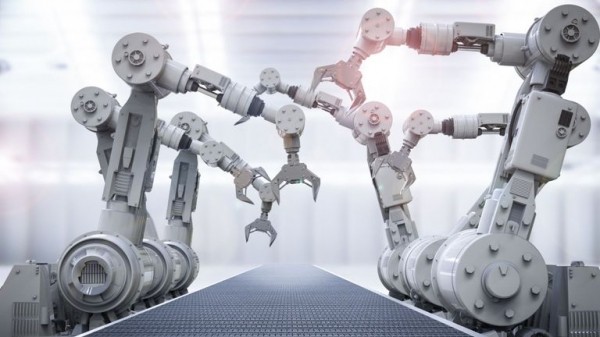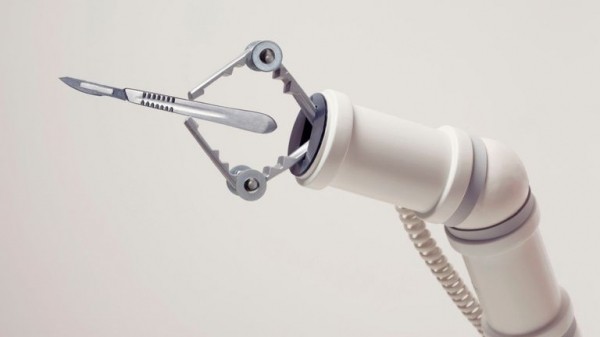UK falls behind G7 rivals on work automation planning
A business and energy select committee report says UK progress is ‘not fast enough’, as entire regions risk being left behind.

The UK is falling behind its G7 rivals when it comes to preparing for mass automation of the workplace and the so-called Fourth Industrial Revolution, MPs have warned.
The parliamentary Business, Energy and Industrial Strategy (BEIS) committee also said entire regions of the UK face being left behind and British businesses could find themselves unable to compete effectively, unless the government steps up efforts to manage the UK’s transition to automation.
The report bears out Research by Sky News in April which showed that Corby is the town most threatened by automation in the UK.
The research found Northamptonshire to be the county most vulnerable to automation: of the 10 towns most at risk of losing jobs to robotics and software in the UK, three are in that county.
The MPs’ report has recommended that the government develops a “UK Robot and AI Strategy” by the end of next year, to improve adoption rates of automation within British industry.
Launching its ‘Automation and the future of work‘ report on Wednesday, the committee said the UK’s progress on automation “has not been fast enough.”
The report said: “The UK’s problem is too few, not too many, robots.
“The potential for an increase in automation to help tackle the Productivity Puzzle and improve living standards has not yet been effectively addressed by the Government.
BEIS committee chair Rachel Reeves MP was scathing of government efforts so far, accusing it of failing to provide the leadership needed to drive investment in automation and robot technologies.

She said: “For all the potential of the UK, and despite our excellent tech and research base, the fact is that we are lagging behind our international competitors in our adoption of robot and automation technologies.
“Productivity, economic growth, and ultimately job-creation and higher earnings, will flow to those countries that capitalise on these technologies.”
“If we are to reap the potential benefits in the future of improved living standards, more fulfilling work, and the 4-day working week, the government needs to do more to support British businesses and universities to collaborate and innovate.”
The report warned that a lack of awareness and understanding of automation was harming business productivity, especially small and medium-sized businesses (SMEs), and blamed a narrowing of the school curriculum over the years, while calling for a flexible and relevant school and university curriculum.
The report also recommended “large-scale expansion” of lifelong learning and re-skilling, as essential to ensuring opportunities “don’t just fall to those with the ‘right’ degrees and skillsets” and to enable the UK to improve on the 17% female workforce in the technology sector.
The committee criticised the government’s decision to close the Manufacturing Advice Service in 2015, as a “mistake which has contributed to making it more difficult for businesses to find help and advice”.
The MPs proposed funding for an impartial advice scheme for businesses that want to invest in automation, based on the “Made Smarter” North-West pilot – set up in Manchester last year to seek out effective ways to engage with manufacturers and encourage them to adopt technologies.

The parliamentary report comes six months after the Office of National Statistics (ONS) predicted that more than 1.5 million people in England are in jobs where there is a “high risk” of automation.
As part of their recommendations for a Robot and AI strategy, the MPs dismissed the idea of a ‘robot tax’ as they thought it would discourage take-up of the technology, especially among SMEs.
Listen to “New Lines” on Spreaker.
:: Listen to the New Lines podcast on Apple Podcasts, Google Podcasts, Spotify, Spreaker
Rather, the committee suggested tax breaks as incentives to adopt the technology.
The report said: “The Government should come forward with a UK Robot and AI Strategy to support businesses and workers as they manage the transition to a more automated world of work.
“This new Strategy must seek to get the right support in place, on issues such as skills, investment and training, to ensure that all parts of the UK share in the jobs and growth benefits offered by automation.
“A new UK Robot Strategy must also help to provide the support needed for British businesses, universities and research centres to succeed.”
Previous article
Free cash machine closures hitting the poor hardest
Next article
Miracle surgery saves tiny fish from cashing in her chips